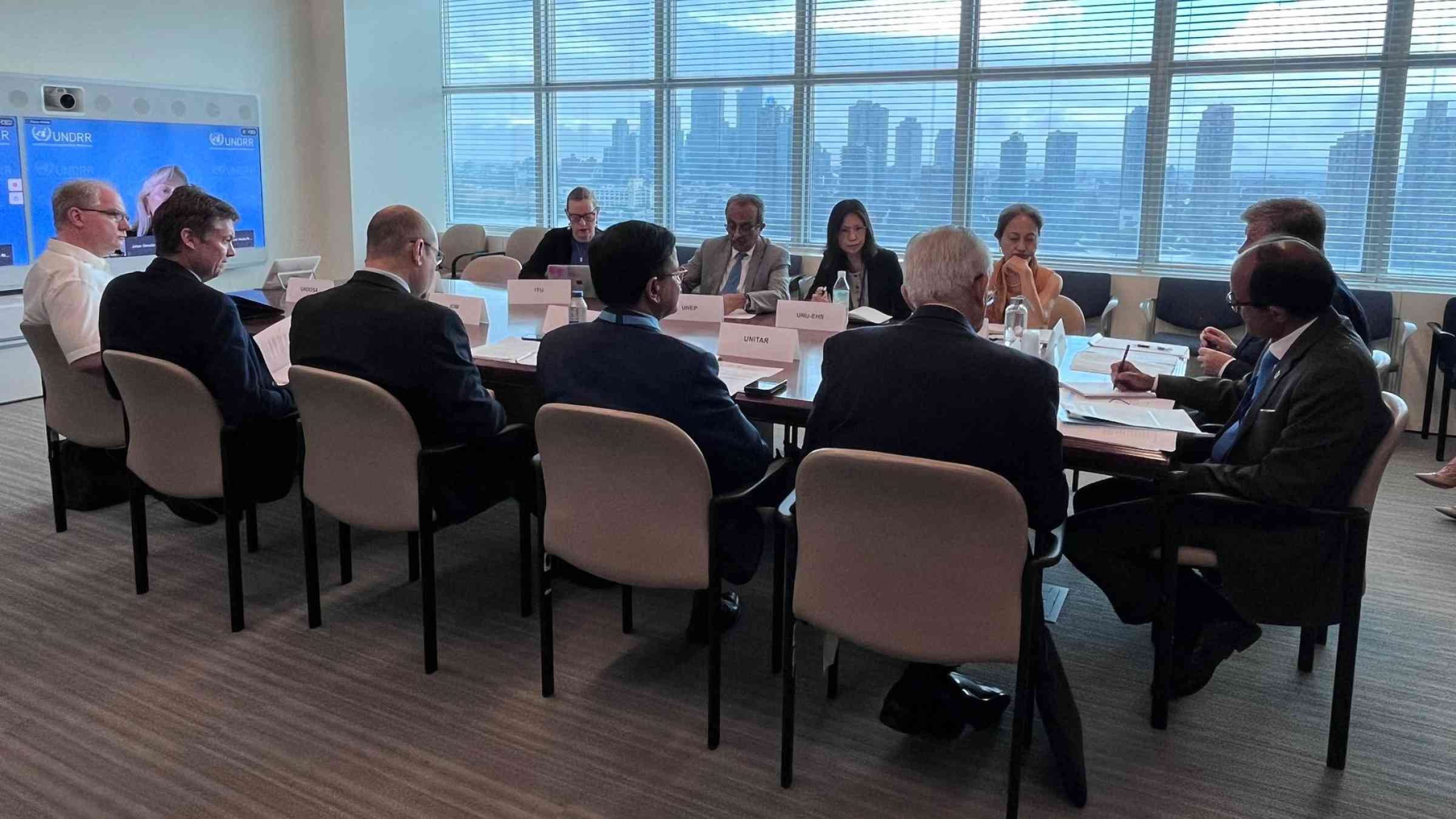UN leaders recommit to joint action to reduce disaster risks

NEW YORK - UN leaders discussed scaling up coordinated UN system effort around risks at the 9th meeting of the United Nations Senior Leadership Group on Disaster Risk Reduction for Resilience, which occurred on 12 July at the UN headquarters in New York.
One year after the adoption of the Political Declaration of the Midterm Review of the Sendai Framework, UN leaders at the meeting reiterated their commitment to accelerate action towards the implementation of the Sendai Framework, as reducing disaster risk is critical to safeguarding hard-won development gains and accelerating progress towards achieving the sustainable development goals (SDGs). Strengthening UN support to developing countries is especially critical in the face of the changing climate and increasing disaster risks.
The UN Plan of Action on Disaster Risk Reduction for Resilience (UN Plan of Action) and the complementary 2030 Recommendations of the UN Senior Leadership Group currently serve as the main guide for harnessing UN system-wide support on disaster risk reduction, climate change adaptation and resilience building until 2030.
A 2023 UN Plan of Action Progress Report revealed significant advances across the UN system, including increased technical support to countries and progress in mainstreaming gender in disaster risk reduction. Notably, twenty-one UN organizations have provided support to 151 countries in strengthening early warning systems in the context of the UN Secretary-General’s Early Warnings for All Initiative.
Despite this progress, sustained and collective action continues to be required to fully implement the Sendai Framework.
Bringing everyone along to protect people from disasters and their impacts
Mr. Kamal Kishore, newly appointed Special Representative of the UN Secretary-General for Disaster Risk Reduction and the Head of UNDRR, stressed the vital need to bring everyone along to curb disasters and their devastating effects on people and infrastructure, calling for extended partnerships beyond the UN system to influence policy and action.
“We need to work as one UN, bringing together our collective strength related to disaster risk reduction to reach the most vulnerable, whose lives and livelihoods are most affected. Whatever we try to do in order to achieve sustainable development goals has to be underpinned by solid efforts to build disaster and climate resilience for the community that we seek to serve.”
Scaling up financing for disaster risk reduction as a strategic priority for SDG acceleration
UN leaders at the meeting agreed to maximize coordinated efforts to accelerate disaster risk reduction financing and investment. The 2023 Political Declaration of the Midterm Review notes that investments in disaster risk reduction and efforts to de-risk investments remain inadequate and that disaster risk reduction-related official development assistance has barely increased. UN leaders should therefore prioritise increasing financing for risk reduction, which would require leveraging public, private, and international sources of in a way that maximizes development outcomes.
Mr. Navid Hanif, Assistant Secretary-General for Economic Development noted during the meeting that “scaled up investment in prevention requires a shift in mindset. It depends both on public sector policies, but also investors and markets. Especially financial markets need to shift on long term time horizons, both for looking at their returns on investment and long-term planning.”
Related links: